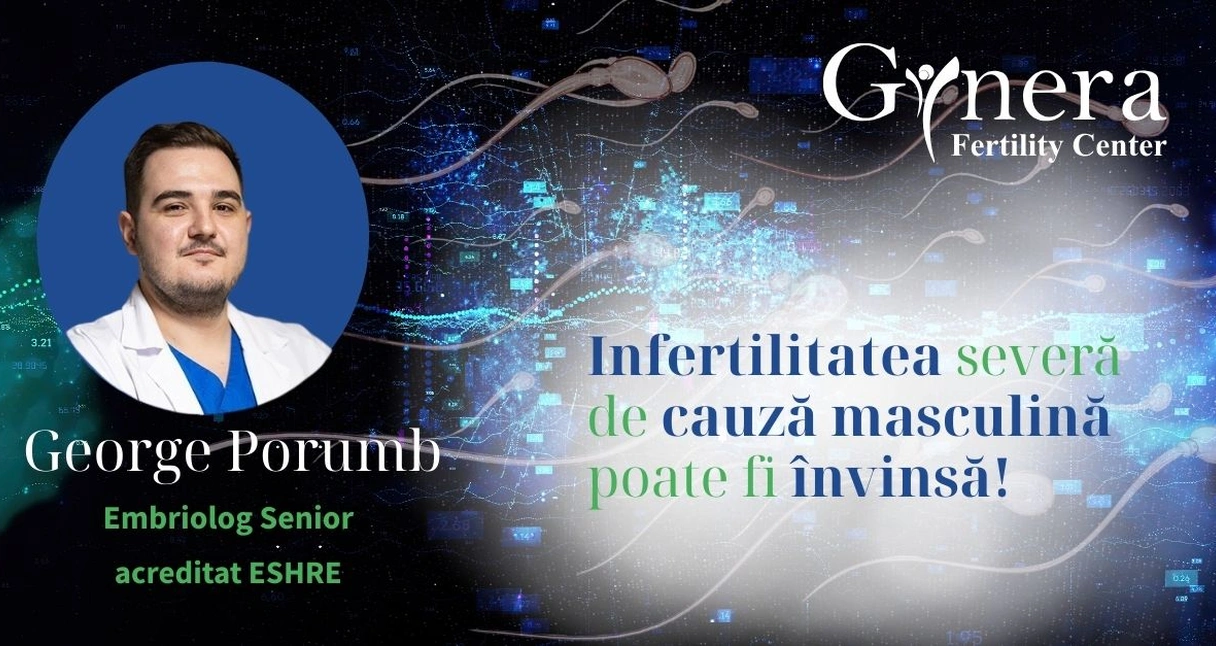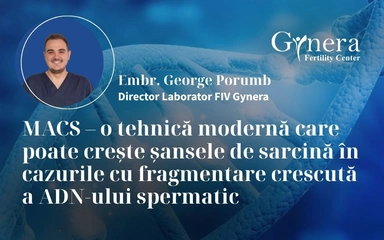Severe Male Infertility Can Be Overcome!
Embryologist George Porumb

The good news is that for many couples, infertility (the inability to conceive) is a challenge that can be overcome with the right diagnosis, treatment, and assisted reproductive technologies designed to help them achieve pregnancy.
What is Total Globozoospermia and How Does It Affect Male Fertility?
In biology, spermatogenesis is the process through which sperm cells—the male reproductive cells—are formed. This process is ongoing and highly complex, and any disruption to it can lead to abnormal sperm production.
In clinical practice, we frequently encounter patients with altered spermograms. One particularly memorable case involved a patient who, following a spermogram, received a severe diagnosis: total globozoospermia.
This is a rare and severe form of teratozoospermia, a condition where a man's sperm cells have abnormal shapes. In total globozoospermia, sperm have round heads, lack an acrosome, and do not have the typical structure needed for fertilization. These abnormal sperm cells are unable to penetrate and fertilize the egg, leading to infertility.
Physiologically, the acrosome enables a sperm cell to pass through the membranes of the egg for fertilization. Without the acrosome, the fusion of maternal and paternal DNA cannot occur naturally.
The exact causes of globozoospermia are not fully understood. However, studies to date suggest a genetic basis, and more recently, environmental factors have also been linked to the emergence of this rare form of teratozoospermia.
Case Management: Reproductive Techniques Used
Using complex micromanipulation and laboratory techniques, we selected the patient’s sperm using the ZyMōt method, which isolates sperm with the lowest DNA fragmentation.
Then, using ICSI (Intracytoplasmic Sperm Injection), each oocyte was injected with a globozoospermic sperm cell. Post-injection, oocyte activation was performed using a specific activation medium.
This approach enabled successful in vitro fertilization and oocyte activation. Two viable blastocysts were obtained, one of which was successfully implanted, resulting in the birth of a healthy child.
Although globozoospermia is rare and complex, understanding its genetic basis, accurate diagnosis, and available treatment options can bring hope to couples struggling to conceive.
It’s essential that affected individuals consult with a specialist in assisted reproduction to receive the best treatment options. This rare and difficult case gives hope to thousands of men battling male factor infertility, offering them a real chance at fulfilling their greatest dream: having a child of their own.
What Does Future Technology Offer for Male Infertility?
In recent decades, significant progress has been made in understanding and diagnosing male infertility. However, many patients still remain infertile despite these advancements.
Artificial Intelligence (AI) is expected to become a key tool in the near future. It will assist in identifying viable sperm cells in complex testicular tissue samples (such as those from micro-TESE procedures), increasing the chances for men with severe infertility to conceive biological children.



